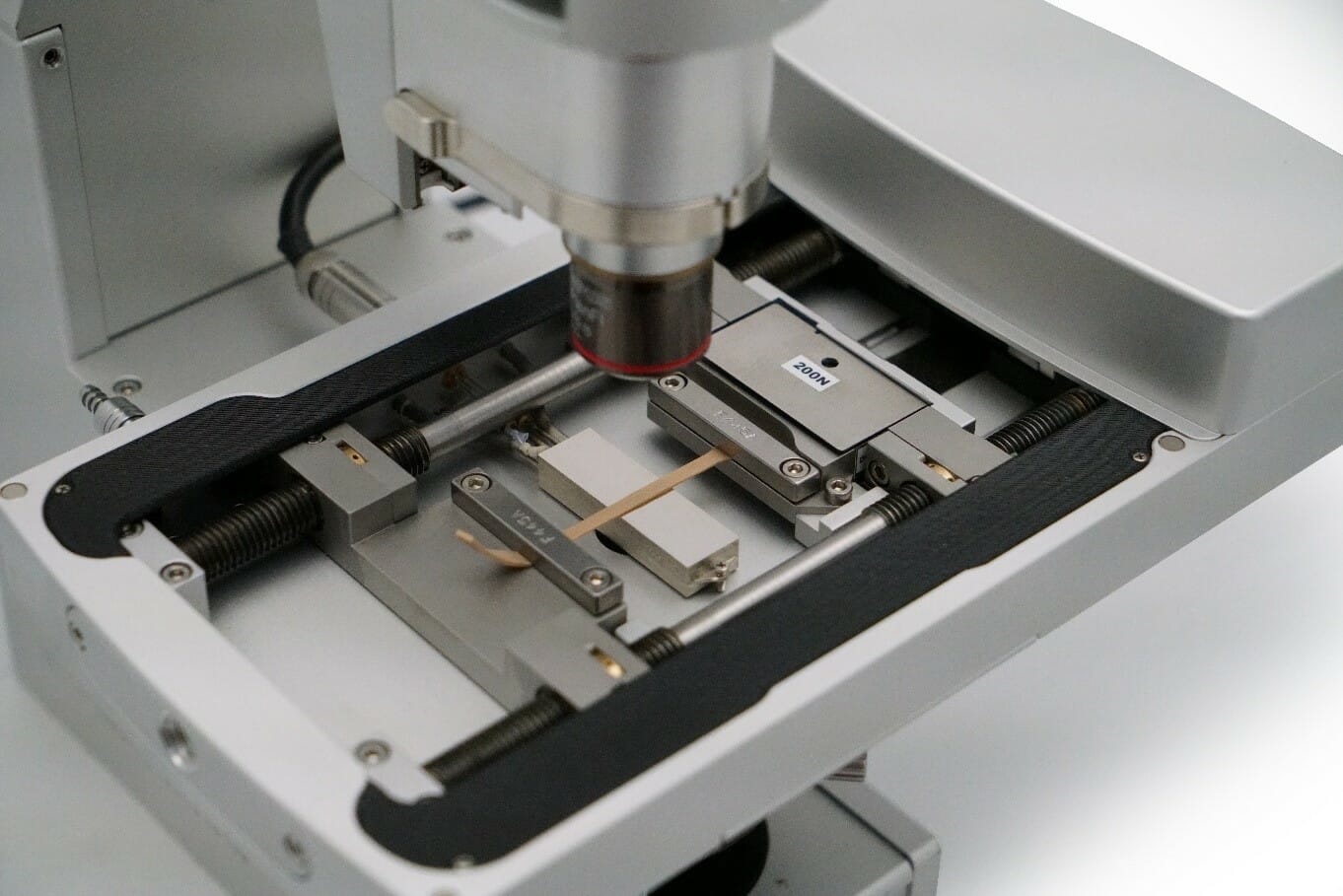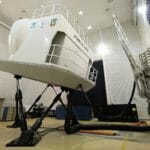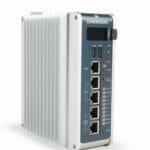Linkam Scientific Instruments, booth 518, 2019 Materials Research Society (MRS) Fall Meeting, Boston, 1-6 December 2019
Market leader in temperature controlled microscopy, Linkam Scientific Instruments, is showcasing the latest version of its tensile stage, at the 2019 MRS Fall Meeting. The company will be unveiling the new liquid cell module for the Modular Force Stage (MFS), which enables tensile testing of submersed samples in liquids up to 60°C.
The new MFS is a compact mechanical characterisation system with a temperature, gas and, optional humidity-controlled sample environment. It can be mounted on a microscope which can be used to directly image the evolution of the microstructure and failure modes of a material while it is undergoing tensile (in-situ) testing. Correlating this optical information with the physical characteristics measured by the MFS provides invaluable information related to the overall performance of a material in a given environment. The latest addition to the system is a liquid cell, which supports a range of liquids from water and other solvents to acidic/basic solutions, broadening the potential of the MFS in the growing fields of biomaterials and tissue engineering.
The liquid cell is the latest in a series of modular components for the MFS. The modular design of the MFS allows users to have an additional level of control over experimental conditions, including control of the atmosphere inside the chamber and the ability to change grips, heater types and force beams. These additional options accommodate a wide range of samples, from single fibre threads to reinforced composites, and environmental control using the humidity or heated liquid cell modules. It offers a flexible upgrade and customisation path and has been designed to accommodate a wide range of different samples and applications, from carbon fibre and graphene in engineering, to new materials for surgical implants and much more.
The MFS can be used with reflected or transmitted illumination, as well as with other popular characterisation techniques such as X-ray, Raman and FT-IR. Its sample chamber can also be gas purged via the built-in gas ports. There are a range of heater options available, from ‑196°C up to 350°C, allowing the structural dynamics of sample materials to be observed and imaged while under defined temperature and tensile, compressive, or bending profiles.
The new liquid cell module features a specialised set of grips and is also compatible with the whole range of force beams capable of handling both high and low strength samples with precision. Ideal for characterising the tensile properties of biomaterials, such as arteries, muscle fibres and corneas, the liquid cell enables materials to be tested in the relevant buffer solution to simulate in vitro testing.
Duncan Stacey, Marketing Director comments: “The MFS has generated significant interest in the market since its recent launch and appeals to those looking to better understand the micro and thermo mechanical properties of a range of materials. Thanks to the new liquid cell module, it now supports the mechanical and tensile testing of even more advanced materials, including multifunctional polymeric materials such as hydrogels or electrospun mats for life science applications. These materials can be used for contact lenses, wound and surgical dressings, and also as potential muscle or tendon replacements. The MFS can now also be used for testing flexible waterproof electronics, bioelectrical devices, nanocomposites and nanomaterials, and many more.”
The 2019 Materials Research Society (MRS) Fall Meeting is the world’s foremost international scientific gathering for materials research. Linkam experts will be available on booth 518 to demonstrate the new MFS and its liquid cell module.
Visit Linkam at www.linkam.co.uk and learn about the broad range of applications in the field of temperature-controlled microscopy.





